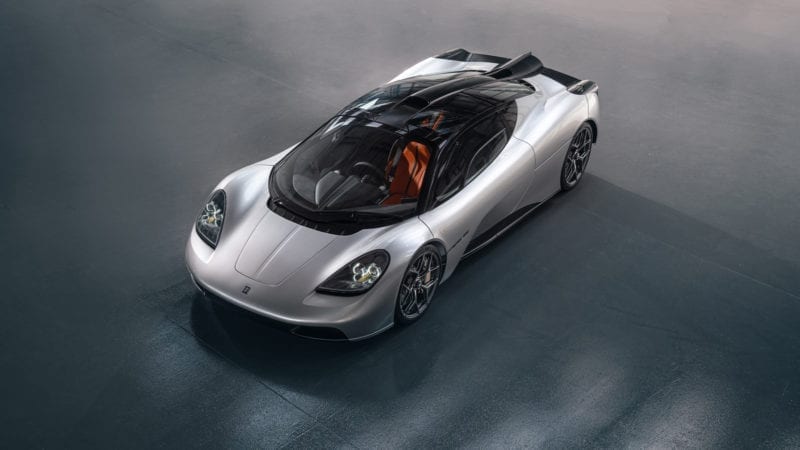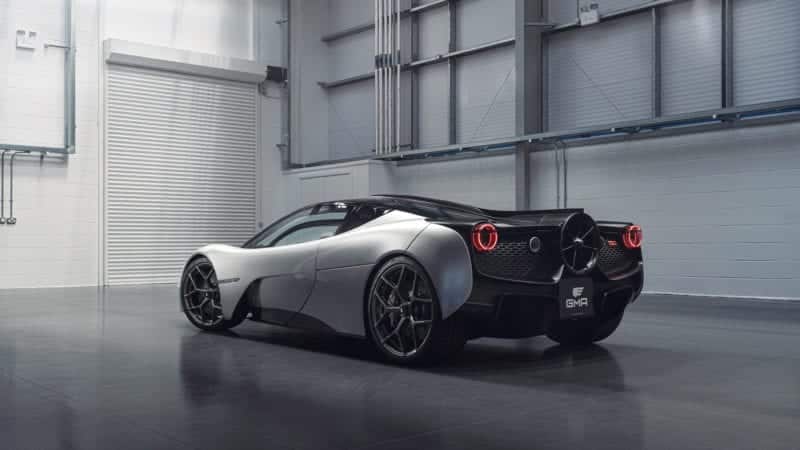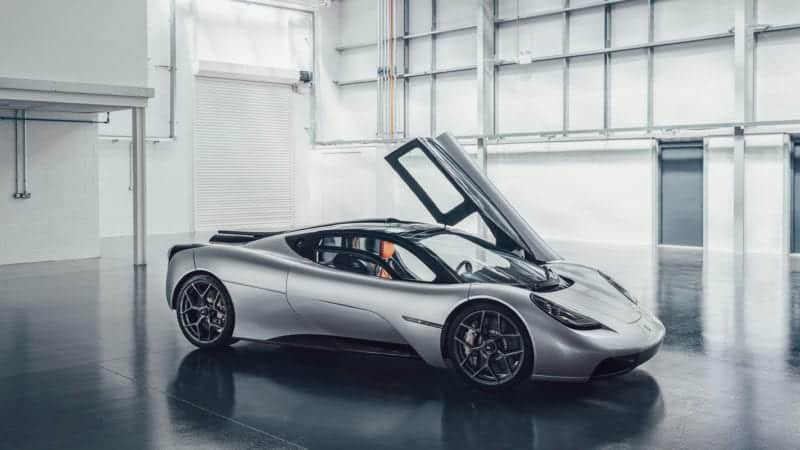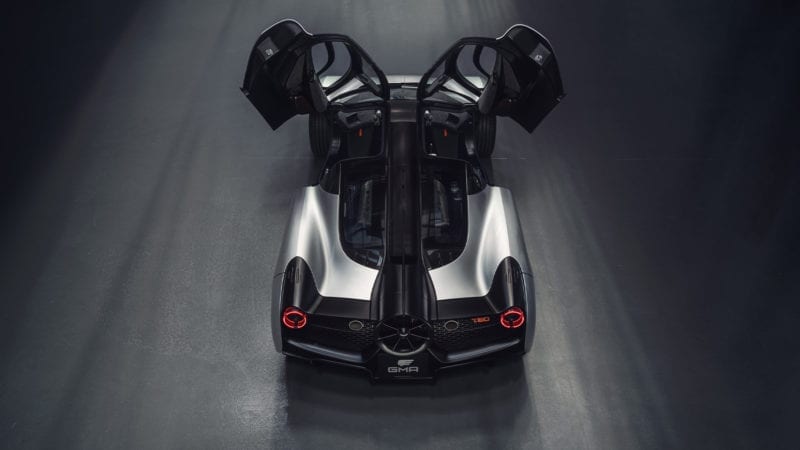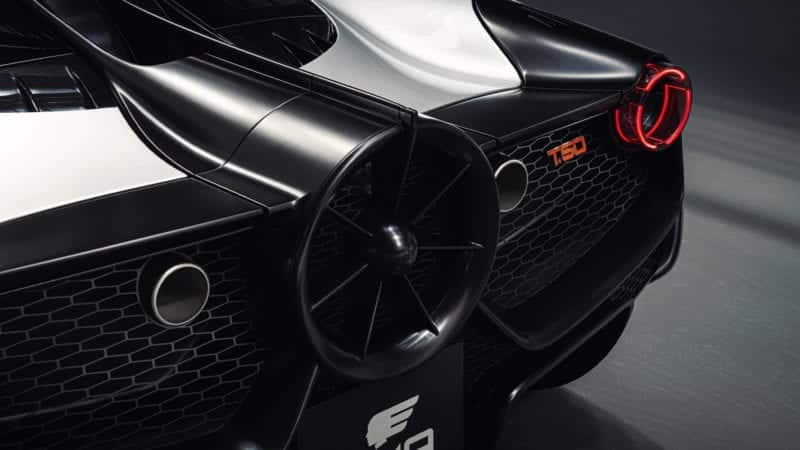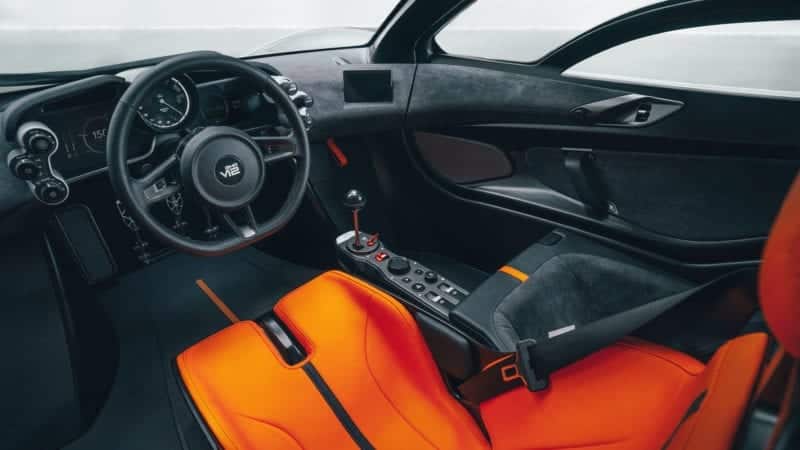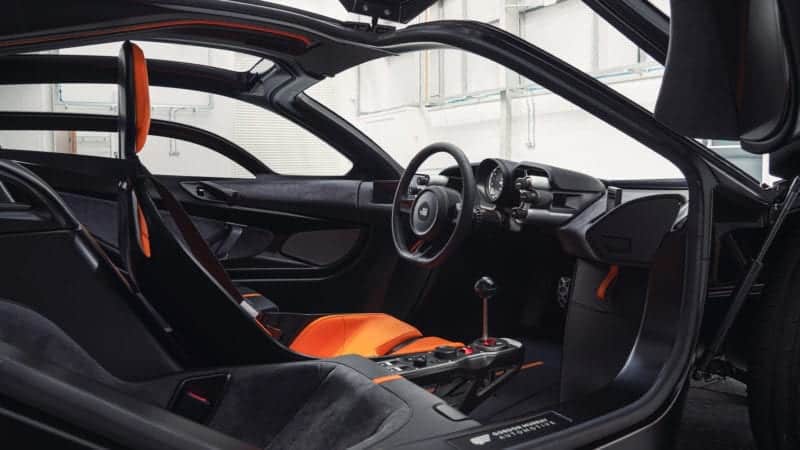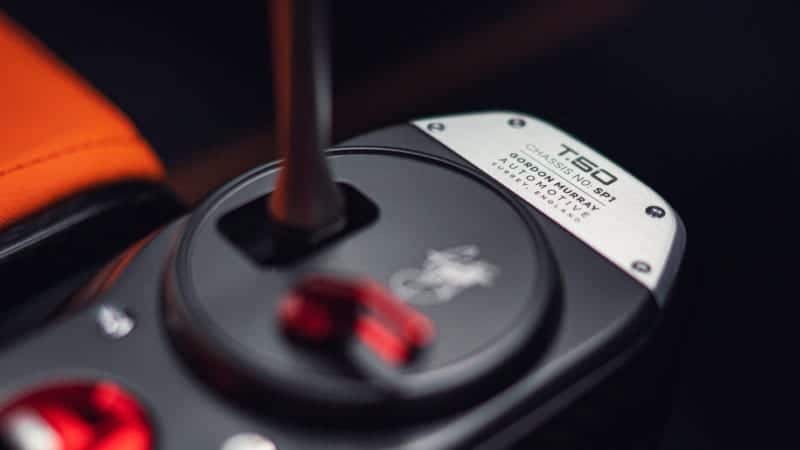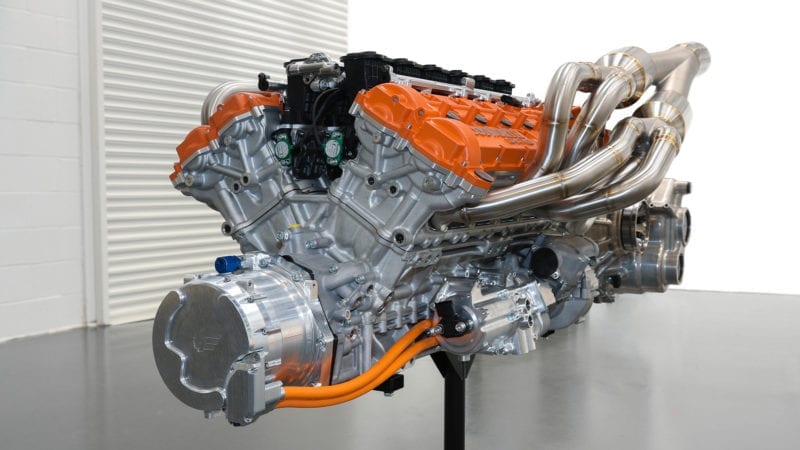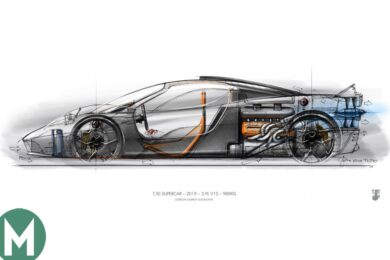I expect many will be thinking this car will be Gordon’s last laugh, that his 50th design in 50 years in the business will be his final hurrah, after all at the age of 74 he has more than earned his retirement. But then I expect no one who thinks this way has ever met the man. I can confirm his mind is as fertile as ever, his loathing of compromise and love of pure engineering at least as fervent now as it was back in his F1 days. If the T.50 succeeds, make no mistake it will not be the last we hear of Gordon Murray Automotive.
But what should he build next? When he designed the F1, he got all its potential rivals together and was profoundly unimpressed by all save the Ferrari F40. He had his reservations about Enzo’s last car (‘I could never have made an F40, not least because I don’t know anyone who can weld that badly), but he did love its lightness and focus on the driving experience.
And I’d love to see his 21st century take on that car: the T.50 will be incredible, but so too will it be practical, civilised and comfortable, with air conditioning, navigation, a bespoke sound system, ample luggage space and so on. So what if he built a car that didn’t bother with all that and was powered by a scaled down V8 or V10 version of his new engine, still with a manual gearbox but with a kerbweight of, say, 850kg. And what if, instead of 100 cars at £2.4 million, he made 200 at £1.2 million? Or 300? Would they sell? I’m no money man, but I’d be amazed if there wasn’t a queue.
Gordon Murray T.50 specification
| Configuration | Two doors, three seats, rear mid-engine, rear-wheel drive |
| Engine | 3.9-litre Cosworth-GMA V12 naturally-aspirated |
| Maximum horespower | 650hp |
| Maximum torque | 463Nm |
| Maximum engine rpm | 12,100rpm |
| Transmission | Six-speed |
| Weight | 980kg |
| Length | 4380mm |
| Width | 1850mm |
| Chassis | Carbon-fibre monocoque |
| Suspension | Double-wishbone front and rear |
| Aerodynamics | Active ground-effect, wide diffuser and fan-assisted underbody airflow |
| Price | £2.36m (before taxes) |
